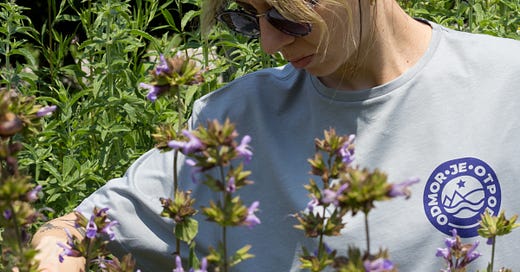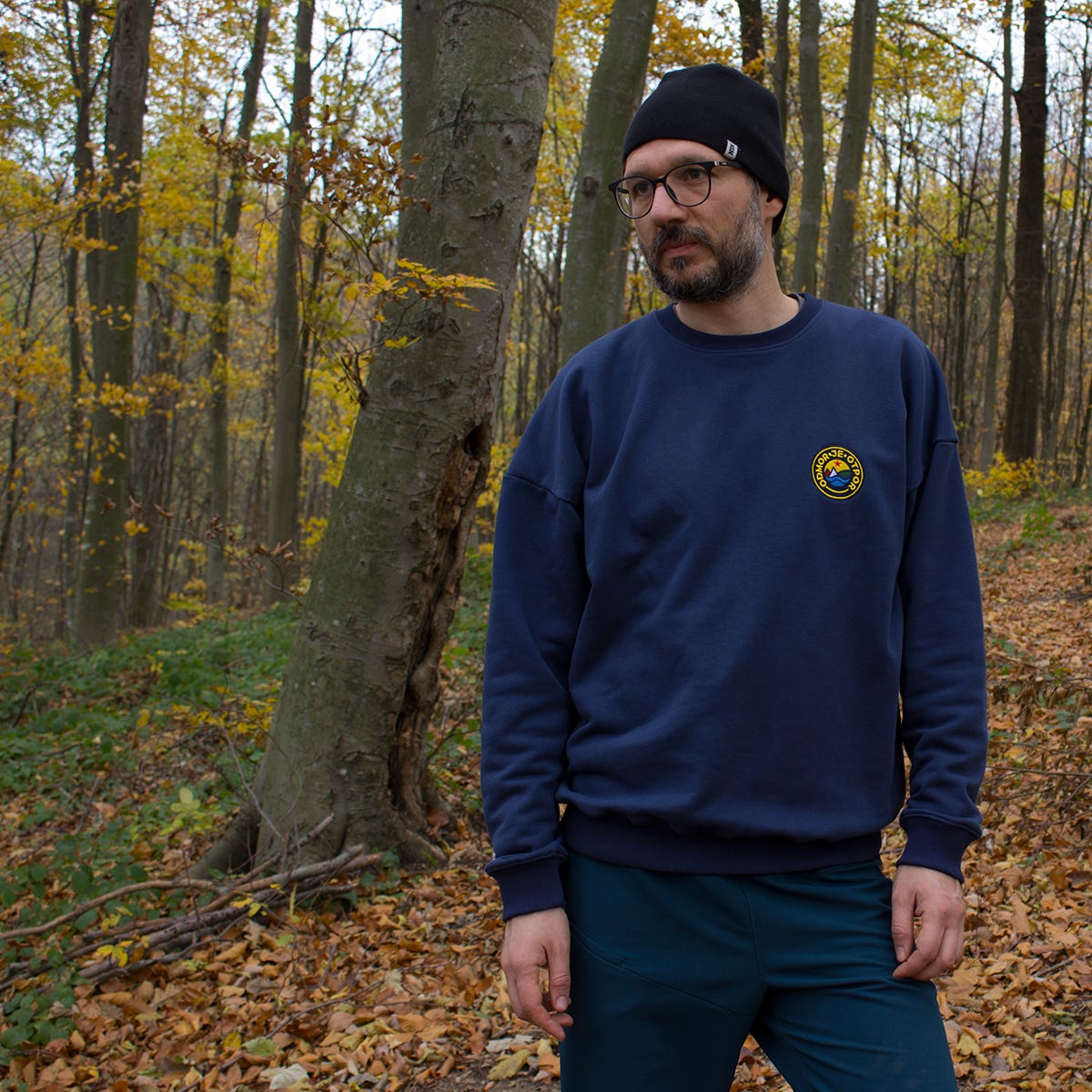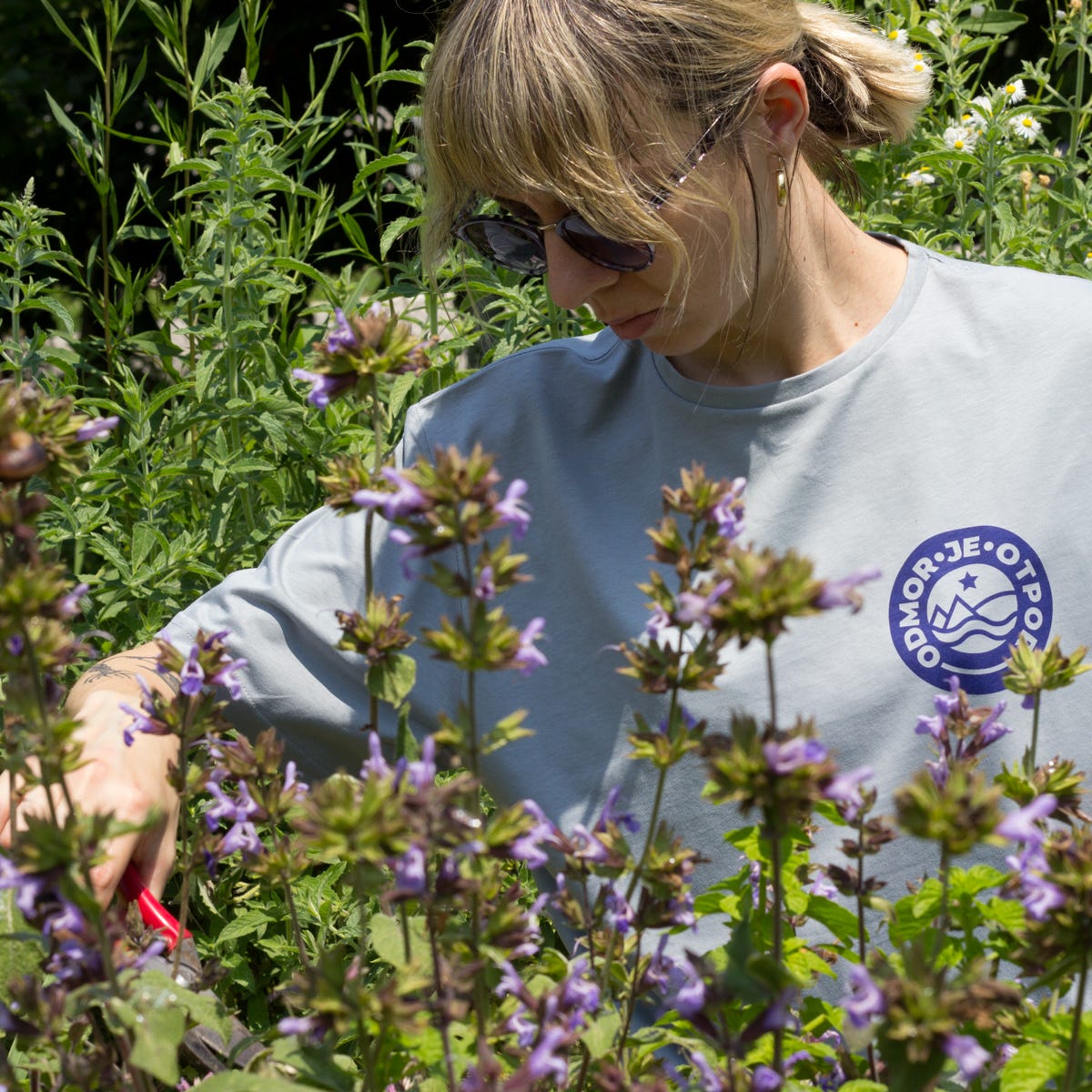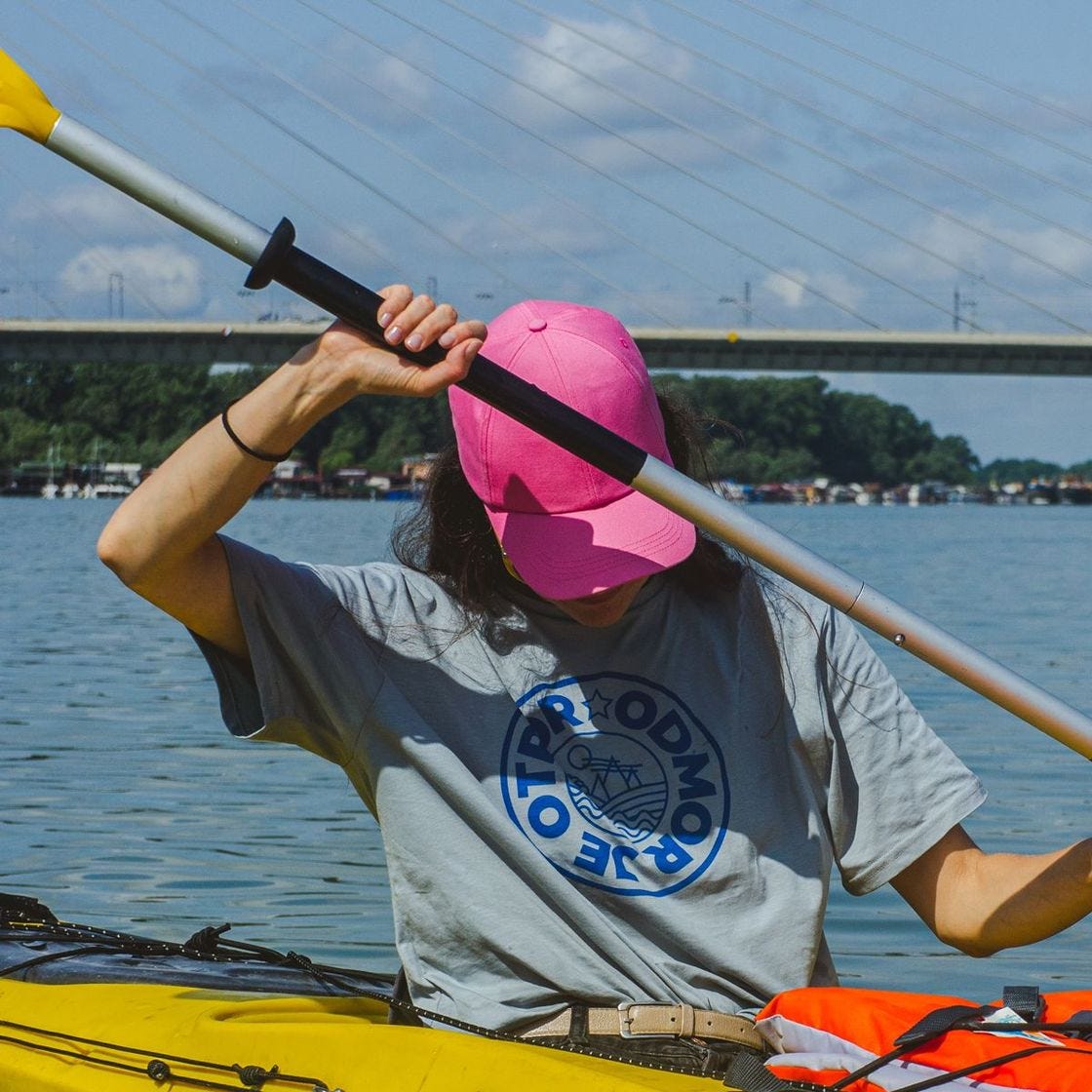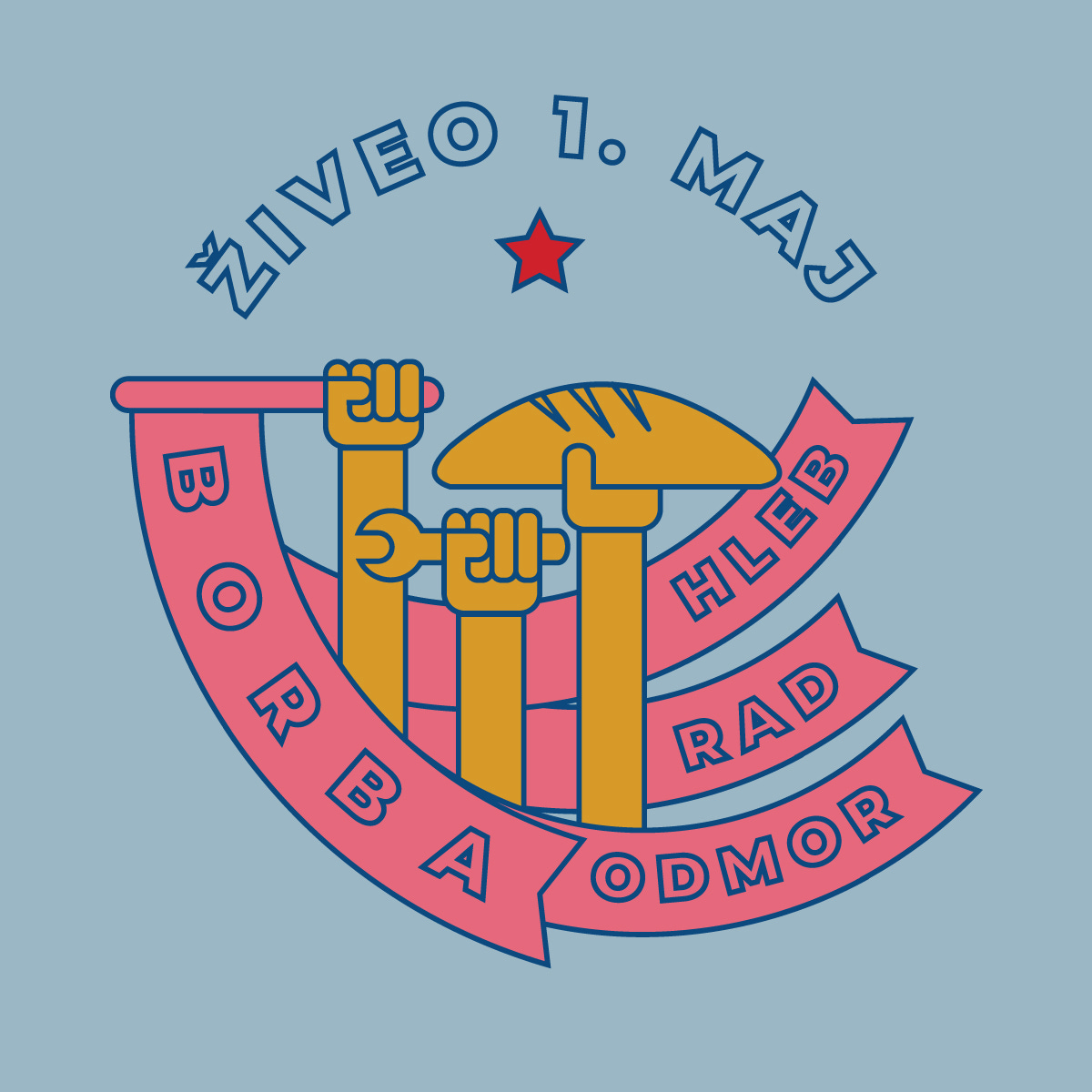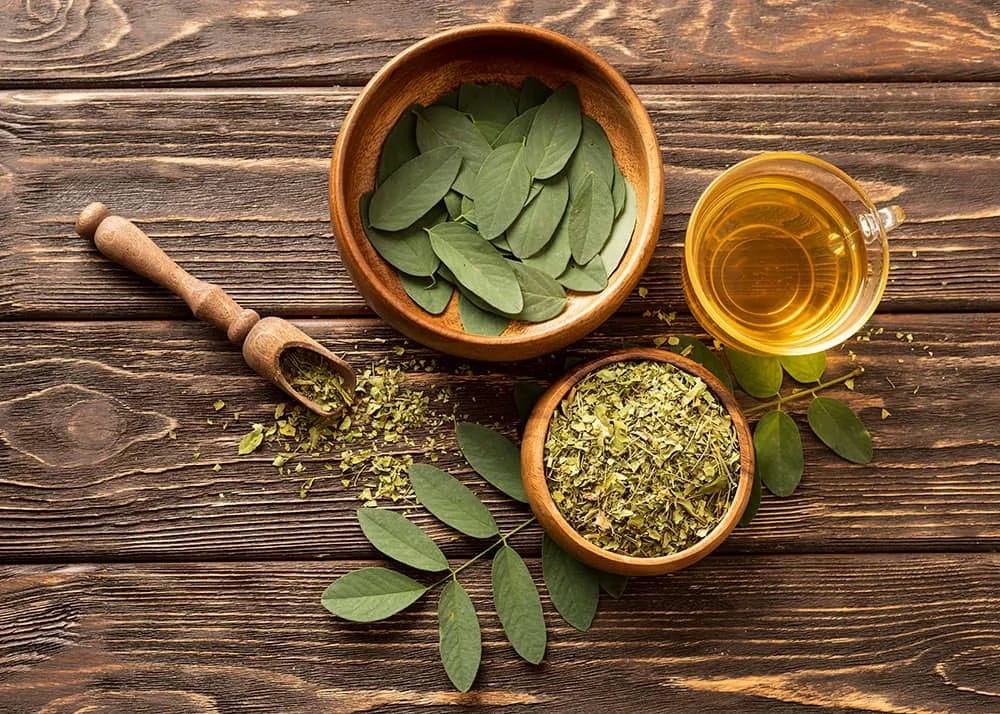S4E18. Rest is resistance
With the project 'Odmor je otpor', the Serbian art and design team Manonija reflects on the value of free time and the toxic productivity of the capitalist system. While proposing a new public holiday
Dear reader,
welcome back to BarBalkans, the newsletter with blurred boundaries.
It is time to rest. As a form of resistance.
Resistance to a system based on the precariousness of work, the exploitation of people and their time, the inherent injustice of the capitalist model and its cult of forced productivity.
Resistance to a society that imposes unsustainable rhythms and blames those people who decide to carve out some space to care for their mental and physical health, not working for a while.
It is a matter of time. Time off, “time to waste”, time dedicated to the work imposed or self-imposed because of a sense of inadequacy. But it is also a matter of vacation and how we define this concept: too often seen either as a brief respite or as a routine that is likely to cause additional stress.
BarBalkans will try to shed light on an issue that is coming up with increasing urgency - especially among the younger generation - with the support of the artist and designer Miloš Miletić, co-founder of the art and design team Manonija and co-creator of the project Odmor je otpor.
In Serbian, Odmor je otpor precisely means “rest is resistance”.
Read also: S4E15. The feminist fight of Serbian Gen Z
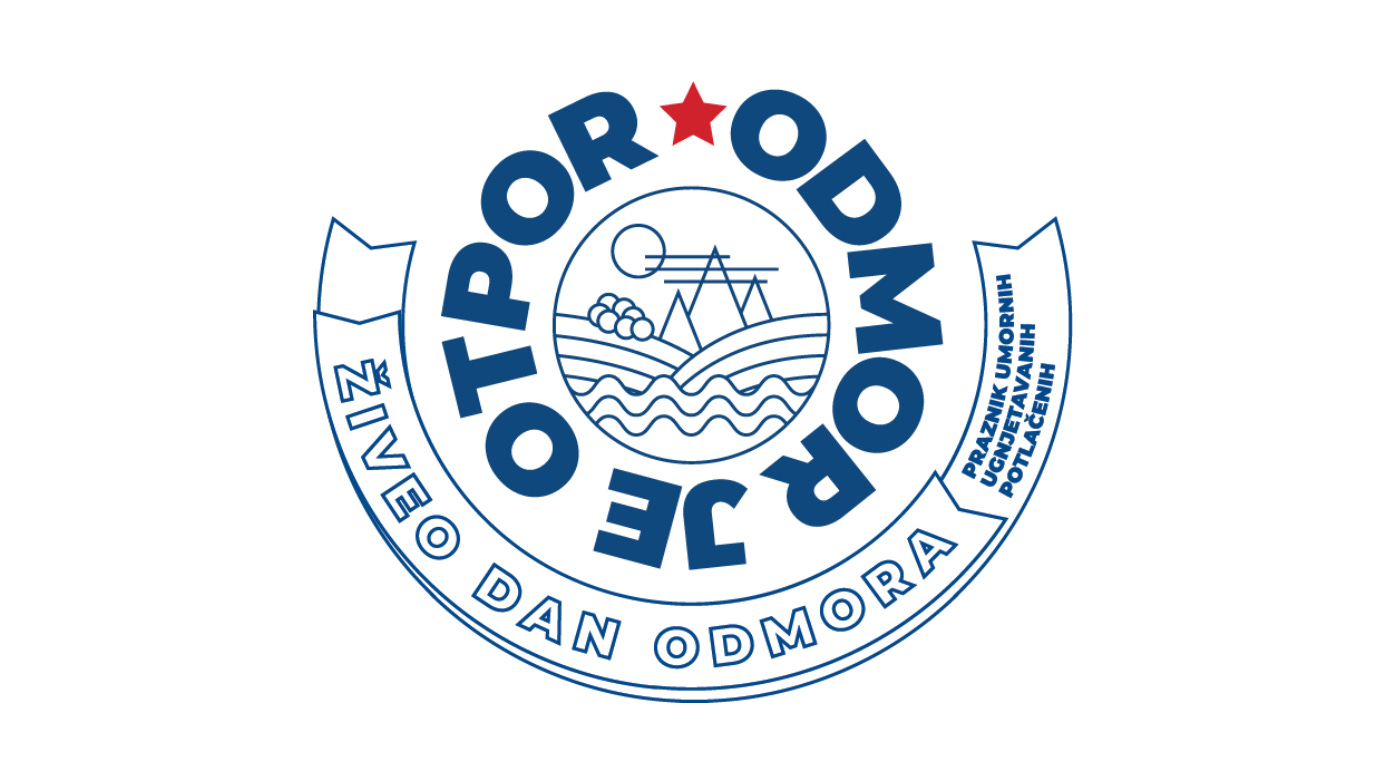
Freedom, work and free time
«Initially, Manonija was an activity carried out by Mirjana Radovanović and myself through our artistic group KURS», Miletić tells BarBalkans, recalling the origins of the project founded in 2018.
However, project-based funding «was not sustainable and very limiting» and the two co-founders felt the need to transfer the recurring themes of their artistic works - «working conditions, anti-fascism, legacy of the partisan movement» - into a «new, free and more approachable» form.
In other words, to «offer these themes to a wider public as usable products», from notebooks to T-shirts, from socks to pins, posters and sweatshirts.
«Manonija gave us greater freedom to make decisions we did not have to justify», the Serbian artist and designer makes it clear. But most of all, «what makes our brand different is the fact that we clearly position ourselves politically and often react to social events». Although «we are aware» that this might have a negative impact on the business.
Read also: S4E8. You should know who is Valter
One of the most sensitive issues is working conditions, which «has always been an important topic in our artistic practice», and inevitably «has been part of Manonija from the beginning».
Most people perceive work as inevitable, if not distressing, and find it impossible to enjoy their work.
But this is not all. «Personally, I consider the issue of time organization interesting and important», Miletić points out, referring to his self-employment and work from home: «It is quite difficult to organize time and make a distinction between leisure and work».
Read also: S4E3. Make haste slowly
This is why reflection on working hours and rest «started from a personal need to free myself from the feeling of “wasting time” and the pressure that something is “urgent”». Two negative impulses that «cause me to blame myself for not having “tried harder”».
The issue «is much broader than just me», and soon Miletić and Radovanović realized that «there is a need to talk about it publicly, because many people find themselves in the same trap of chasing productivity and neglecting immediate surroundings».
Odmor je otpor
The project Odmor je otpor, “rest is resistance”, was born out of this experience and reflections.
«Today, most workers are in an insecure and precarious position», and several factors have led to blurring the boundaries between work and the rest of life: «The fear of losing a job, the flexibilization of working hours and space, the development of technologies that enable us to be constantly available online».
Miletić points out that «in the late capitalist society and attention economy, there are few moments when we are free from work or thinking about work, and the path to burnout is easier than ever».
Just think of the expression “well-deserved rest” or the way we are instilled with the idea from an early age that we can earn moments of happiness only through hard work. That you work to “deserve” something, and not because you truly love what you are doing, whether it is medicine, handiwork, journalism or cooking.
All these activities and jobs are necessary for social progress, but we need a change in how we relate with both work and rest. In other words, vacation is not just the reward for a certain number of hours of hard work.
We have to talk more about «the problem of glorifying work» and «the importance of rest». Even through an activity like Manonija.
The slogan Odmor je otpor was coined not only because of the need to «communicate well with the audience», but mainly because it can «open up a space for discussing toxic productivity, burnout, lack of free time» and other problems of today’s workers.
«This is a contemporary anti-capitalist slogan in the struggle for workers’ rights», Miletić claims, referring to “resistance” not to work, but to the daily injustice inherent in capitalism, with an impact on people’s mental and physical health.
«The workers’ struggle should shift towards fighting for more free time and the ultimate liberation from work that we sell to secure basic living conditions». Because work should simply be a way to realize ourselves in the skills we love most, and without someone regulating and rewarding it.
In this context, «rest and leisure are important ways to fight against capitalism and productivity». That is to say, «when we “disconnect” and are not productive from the perspective of capitalism, we can open up a space to see things that are truly important to us and to better notice our immediate surroundings».
Read also: S2E18. Streaming, Balkans and hot chocolate
The Day of Rest
From Odmor je otpor came another initiative, Dan odmora, the “Day of Rest”.
«This is a holiday that we celebrate every year on the second Monday in August», Miletić explains the significance of this holiday: «Just as there is International Workers’ Day on May 1st, which is crucial for workers’ struggles, there should also be a day that celebrates rest as an important segment in people’s lives».
Because «without rest there can be no work». Moreover, rest and free time «should not be taken for granted», considering that «today there is increasing talk about free time, but it is still a privilege of the wealthy and educated strata of society».
Proclaimed for the first time in 2021, the Day of Rest aims to become increasingly international and reach as many people who share the same urgency.
The hope is the second Monday in August to be recognized as an official, non-working holiday by the United Nations and all governments. And it will be celebrated worldwide by resting, of course.
Read also: S2E32. Journey to extinguished countries
However, «it is hard to say whether there is a clear goal», the co-creator of the Day of Rest confesses, underlining that much depends on each person’s sensibility.
«For me, it is about liberating work from capitalism, or building a society where we do not have to work to secure the basic living», ultimately making it «a creative process to fulfill ourselves through the activities we love». For some others, the goal «may just be to have more free time, which is equally important».
But in any case, «anyone who talks in their environment about fatigue, the need for a break, vacation, the need to have more time for themselves, is already part of the resistance», the co-founder of Manonija and the Odmor je otpor project encourages.
Read also: XXXVI. Death is not the end
Pit stop. Sittin’ at the BarBalkans
We have reached the end of this piece of the road.
In the midst of a resistance made of rest and taking care of our own mental and physical well-being, our bar, the BarBalkans, hosts the co-creator of the Odmor je otpor project.
While continuing our journey with a sense of tranquility, Miletić recommends «herbal teas that can be found in the mountains of the Balkans», as we look forward to celebrating Rest Day all together.
Read also: S4E13. Gastronationalism tastes like nothing
Let’s continue BarBalkans journey. We will meet again in two weeks, for the 19th stop of this season.
A big hug and have a good journey!
If you have a proposal for a Balkan-themed article, interview or report, please send it to redazione@barbalcani.eu. External original contributions will be published in the Open Bar section.
The support of readers who every day gives strength to this project - reading and sharing our articles - is also essential to keep BarBalkans newsletter free for everyone.
Behind every original product comes an investment of time, energy and dedication. With your support BarBalkans will be able to elaborate new ideas, interviews and collaborations.
Every second Wednesday of the month you will receive a monthly article-podcast on the Yugoslav Wars, to find out what was happening in the Balkans - right in that month - 30 years ago.
You can listen to the preview of The Yugoslav Wars every month on Spreaker and Spotify.
If you no longer want to receive all BarBalkans newsletters (the biweekly one in English and Italian, Open Bar external contributions, the monthly podcast The Yugoslav Wars for subscribers), you can manage your preferences through Account settings.
There is no need to unsubscribe from all the newsletters, if you think you are receiving too many emails from BarBalkans. Just select the products you prefer!

